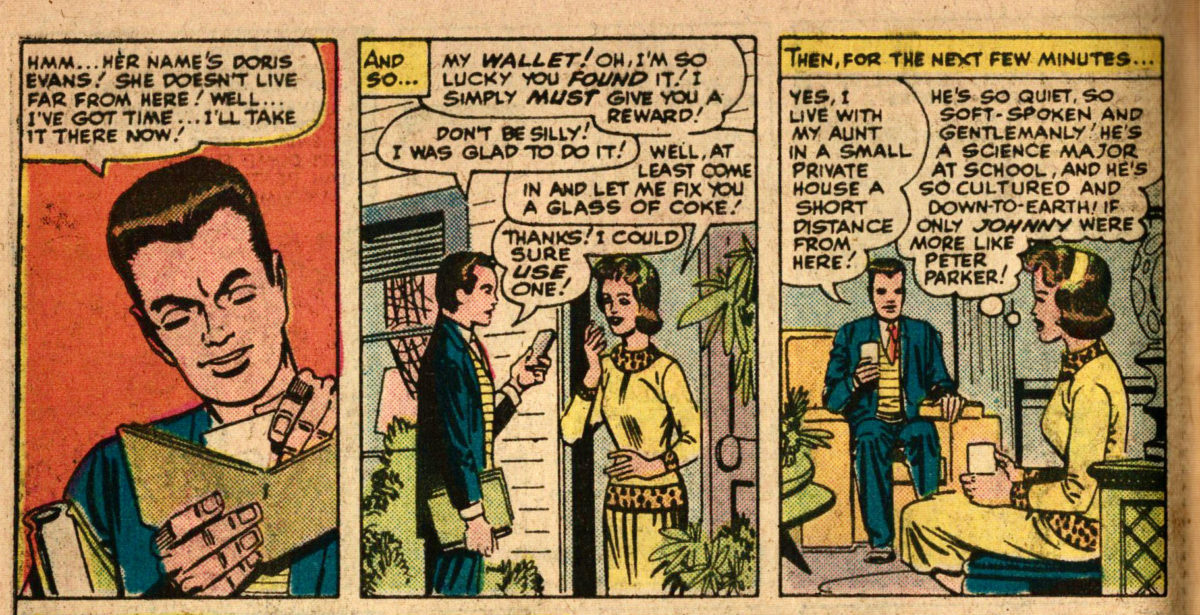Featuring: Prince Namor, the Sub-Mariner
Release: February 3, 1966
Cover: May 1966
12 cents
Now this is a story! By: Stan Lee
Now this is pencilling! By: Adam Austin
Now this is delineation! By: Bill Everett
Now this is lettering! By: Artie Simek
12 pages
| Previous | #490 | Next |
|---|---|---|
| Tales to Astonish #78, Story B | Reading order | Tales to Astonish #79, Story B |
| Tales to Astonish #78, Story B | Tales to Astonish | Tales to Astonish #79, Story B |
Back, you mortal rabble– back!!

Without much fanfare, we have Bill Everett inking Gene Colan. Bill Everett is the creator of the Sub-Mariner. Of course, for whatever reason, it’s the publisher and not he that controls the character. So Marvel gets to publish and profit off Sub-Mariner stories, and he only gets paid if he does more work. So here he is inking Colan’s pencils with Stan adding dialogue. Once Everett wrote and drew Namor’s adventures entirely on his own.
He’s slowly coming back to do more work for Marvel. The last thing he did for them was create Daredevil. But his Daredevil comic was drawn with immaculate detail and unfortunately not within deadline. So he got immediately removed from his own character, and only now 2 years later is starting to get regular work with Marvel again.
As of last issue, he’s the regular finisher on the Hulk stories within this title. He’s just filling in on this Namor story, but will be returning to Namor regularly soon.
I was down to two choices for the pull quote at the top of this quote. I went with one that best exhibited Namor’s personality. I could have gone with the more standard Stan Lee heroic purple prose: There is a time to flee– and a time to fight! While life endures–I shall ever choose the latter course!

I’m never quite clear on what the powers of all these characters are. Namor sometimes seems like Superman. But we see here he’s not bulletproof. He gets shot in the shoulder, and is wounded and losing blood.
Continue reading “Tales to Astonish #79”































